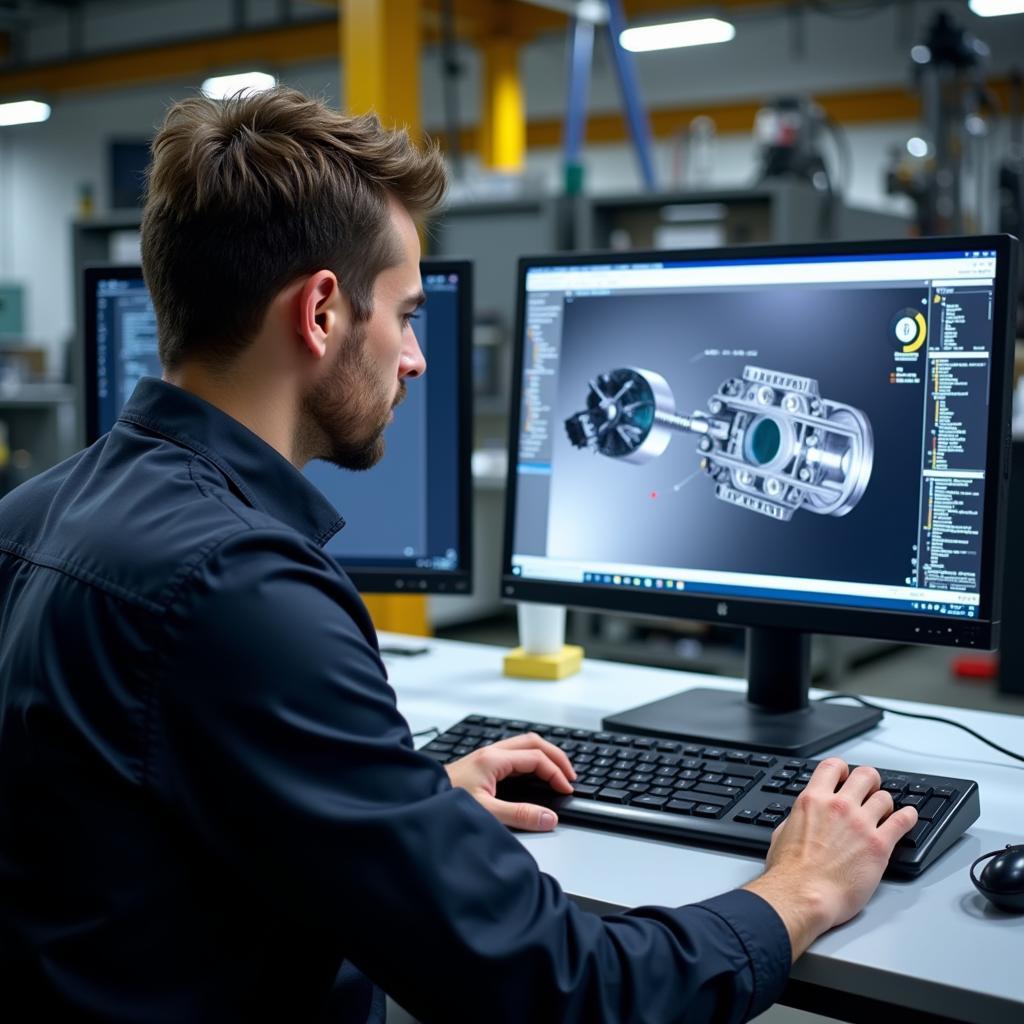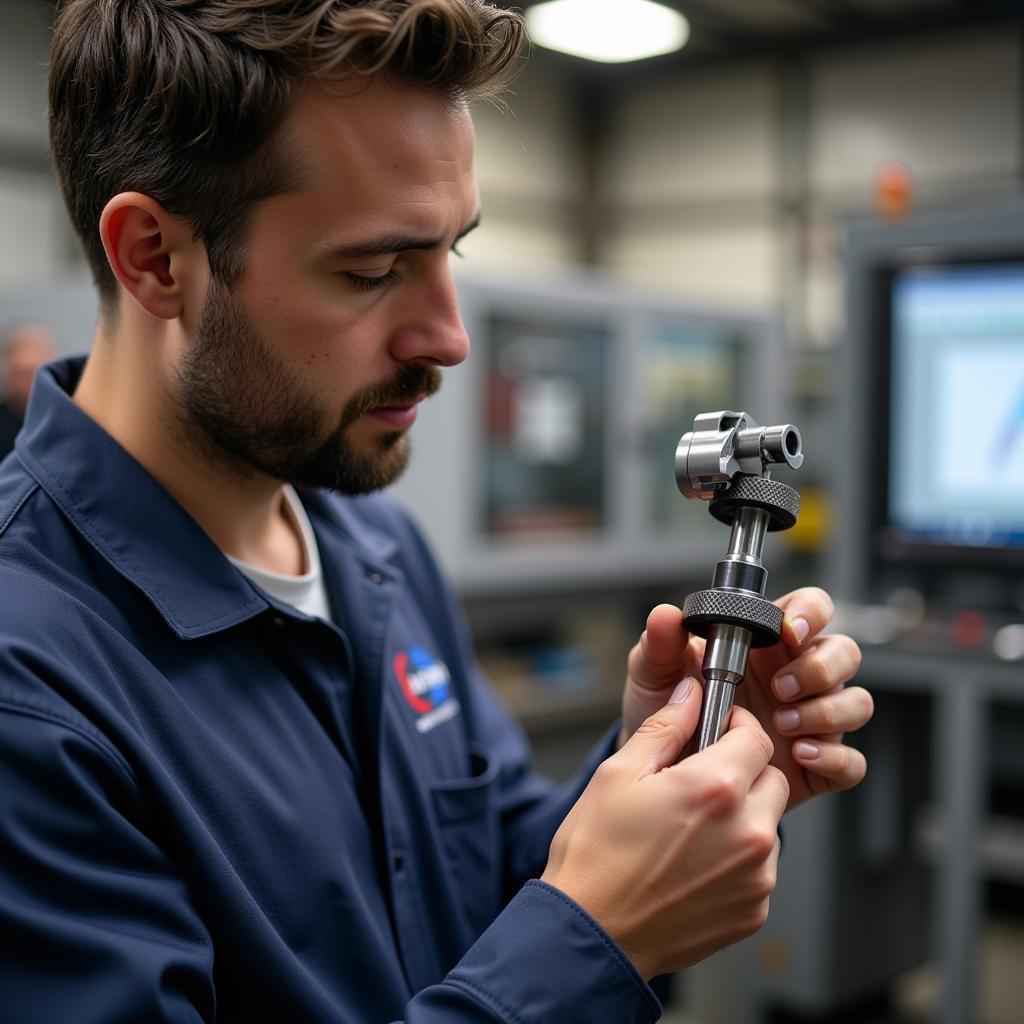A Career In Tool Design involves the creation and development of precision tools and dies used in manufacturing processes. It’s a field that demands a blend of technical expertise, creativity, and problem-solving skills. If you’re fascinated by how things are made and enjoy the challenge of designing intricate mechanisms, then tool design might be the perfect career path for you. This article explores the exciting world of tool design, covering educational requirements, essential skills, career progression, and future prospects. the career design tool kit
Understanding the Role of a Tool Designer
Tool designers are the architects of manufacturing. They are responsible for creating the specialized tools and dies that shape, cut, and form raw materials into finished products. This involves everything from conceptualizing initial designs to overseeing the manufacturing and testing of the final tools. Their work is crucial for various industries, including automotive, aerospace, consumer goods, and medical devices.
Essential Skills for Tool Design
A successful tool design career requires a combination of technical and soft skills. Strong proficiency in CAD/CAM software is essential, as is a deep understanding of manufacturing processes and materials science. Furthermore, excellent problem-solving abilities, attention to detail, and strong communication skills are vital for collaborating with other engineers and technicians.
 Tool Designer Working on CAD Software
Tool Designer Working on CAD Software
Educational Pathways to Tool Design
While a bachelor’s degree in mechanical engineering or a related field is often preferred, there are several pathways into a tool design career. Associate degrees, vocational training programs, and apprenticeships can provide valuable hands-on experience and industry-specific knowledge.
How to Choose the Right Education Program
When selecting a program, look for curriculum that covers areas like machining, materials science, CAD/CAM software, and manufacturing processes. Consider programs with strong industry connections, offering internships or co-op opportunities to gain practical experience.
Career Progression and Specializations in Tool Design
Starting as a junior tool designer, you can progress to senior roles with increasing responsibility and specialization. Some designers focus on specific industries or types of tooling, such as mold design, jig and fixture design, or die casting. With experience, you could become a project manager, leading teams of designers and overseeing complex tool design projects.
What Does the Future Hold for Tool Design?
The field of tool design is constantly evolving with advancements in technology. Automation, additive manufacturing, and the increasing use of simulation software are shaping the future of this profession. Keeping up-to-date with the latest trends and technologies is critical for career advancement.
What are the salary expectations for a Tool Designer?
Salaries in tool design vary depending on experience, location, and industry. Entry-level positions typically offer competitive starting salaries, with significant growth potential as you gain experience and specialize.
“A strong foundation in engineering principles coupled with practical experience in CAD/CAM software is crucial for success in tool design,” says Johnathan Davis, Senior Tool Design Engineer at Advanced Manufacturing Solutions.
the career design tool kit rockport institute
Is Tool Design a good career choice?
For individuals with a passion for engineering, problem-solving, and hands-on work, tool design offers a rewarding career path with ample opportunities for growth and specialization.
“The ability to see your designs come to life and play a vital role in the manufacturing process is incredibly fulfilling,” adds Emily Carter, Lead Tool Designer at Precision Tooling Inc.
 Tool Designer Inspecting Finished Tool
Tool Designer Inspecting Finished Tool
Conclusion
A career in tool design offers a unique blend of technical challenge and creative satisfaction. As industries continue to evolve and demand increasingly complex and precise tools, the role of the tool designer remains essential. So, if you’re looking for a career that combines your passion for engineering with the opportunity to shape the future of manufacturing, tool design might be the perfect fit. Remember to continuously update your skills and embrace new technologies to stay at the forefront of this dynamic field.
career center’s career portfolio tool
FAQ
- What is the typical career path for a tool designer?
- What software is commonly used in tool design?
- What are the key industries that employ tool designers?
- What are the educational requirements for a tool design career?
- What are the future prospects for tool design?
- How can I stay updated with the latest trends in tool design?
- What are some common challenges faced by tool designers?
Need assistance? Contact us via WhatsApp: +1(641)206-8880, Email: [email protected] or visit us at 910 Cedar Lane, Chicago, IL 60605, USA. Our customer support team is available 24/7.

Leave a Reply